Lessons for African Youth: Preserve Indigenous Knowledge

Lesson 2: Preserve Indigenous Knowledge A major lesson for young African youth is a call to preserve and cherish indigenous knowledge. Embedded within the customs, rituals, and wisdom of Africa’s diverse communities is a wealth of insights and understanding that have sustained societies for centuries. Indigenous knowledge encompasses a wide spectrum of expertise, from traditional medicine and agricultural practices to storytelling and craftsmanship. It is the accumulated wisdom of generations who have learned to thrive in Africa’s varied ecosystems, adapting to its challenges and harnessing its resources. Preserving indigenous knowledge is an act of cultural preservation, ensuring that the unique heritage of each African community endures. But it goes beyond that: it is also about recognizing the value of this knowledge in addressing contemporary issues. Where climate change, food security, and healthcare are pressing concerns, indigenous knowledge can provide innovative solutions. It offers alternative approaches to sustainable agriculture, holistic healthcare, and environmental stewardship that have been refined over centuries. For young Africans, this lesson carries a profound responsibility. It is an invitation to engage with your elders, to learn from them, and to document their knowledge for future generations. It is a recognition that while modern education is crucial, it should complement rather than replace the wisdom embedded in African traditions. Moreover, preserving indigenous knowledge is not just a matter of nostalgia: it is about empowering communities to take ownership of their development. It is about bridging the gap between tradition and progress, recognizing that both have a role to play in shaping Africa’s future. The lessons outlined here are not merely suggestions but a blueprint for the empowerment and transformation of young African youth. At Shades of Us, these lessons are not just principles: they are at the core of our mission. By embracing these lessons, young Africans become the protagonists of their narratives. Lesson 1: Embrace Cultural Diversity
Sanitation Superheroes
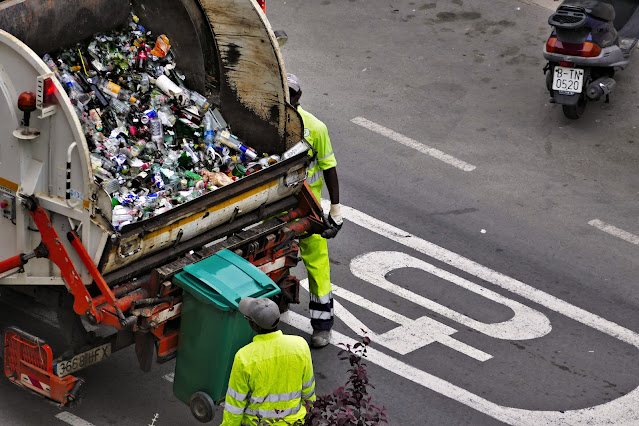
There exists a unique league of heroes we are going to call the ‘Sanitation Superheroes’. These extraordinary individuals don’t wear capes or possess superhuman strength, but they play a vital role in safeguarding our health, our communities, and our environment through their unwavering commitment to sanitation and cleanliness. The Sanitation Superheroes are the dedicated sanitation workers who toil tirelessly to ensure our waste is collected and disposed of safely. They are the janitors and custodians who keep our schools and workplaces clean and hygienic. They are the environmentalists and activists who fight against pollution and promote sustainable sanitation practices. These unsung heroes work quietly and diligently behind the scenes, making the world a healthier and more livable place. Sanitation Superheroes have diverse roles and responsibilities that revolve around the principles of cleanliness, hygiene, and waste management. Some of their key functions include: Waste Collection: Sanitation workers are the backbone of waste collection systems. They pick up trash from homes, streets, and businesses, preventing the spread of disease and maintaining the aesthetics of our neighborhoods. Cleaning and Disinfection: Janitors and custodians play a crucial role in maintaining the cleanliness of public spaces. They sanitize surfaces, and empty trash bins, and ensure that public areas are safe and hygienic. Environmental Stewardship: Environmental activists and organizations work tirelessly to protect natural water sources, reduce pollution, and promote sustainable sanitation practices. They advocate for clean rivers, oceans, and air. Education and Advocacy: Sanitation Superheroes often engage in community education and advocacy efforts to raise awareness about the importance of proper sanitation. They teach people about waste reduction, recycling, and responsible water use. Emergency Response: During natural disasters and public health emergencies, sanitation workers are on the front lines, helping to maintain sanitation and prevent the outbreak of diseases. The work of Sanitation Superheroes is indispensable to our society and the environment for several reasons: Health and Hygiene: Proper sanitation practices are fundamental to public health. Sanitation workers and custodians prevent the spread of diseases by maintaining clean and safe environments. Environmental Protection: Environmental activists and organisations champion the cause of protecting natural resources. Their efforts help ensure clean water, air, and land for future generations. Community Well-being: Clean and well-maintained public spaces contribute to a sense of community pride and well-being. This positively affects the quality of life for all residents. Disaster Resilience: In times of crisis, sanitation workers are essential for maintaining order and preventing secondary disasters related to sanitation breakdowns. Sustainable Future: Advocates for sustainable sanitation practices help mitigate the environmental impact of waste and promote a more sustainable and eco-friendly future. Sanitation Superheroes may not have the glamour of traditional superheroes, but their contributions to society are immeasurable. They safeguard our health, protect our environment, and ensure the cleanliness and hygiene of our communities. Their dedication and selfless service are reminders that heroism comes in many forms, and sometimes, it’s the unsung heroes who make the greatest impact on our lives. We at Shades of Us urge everyone to recognize and celebrate the work of Sanitation Superheroes and strive to support their efforts in creating a cleaner, healthier, and more sustainable world for all.
Unclean
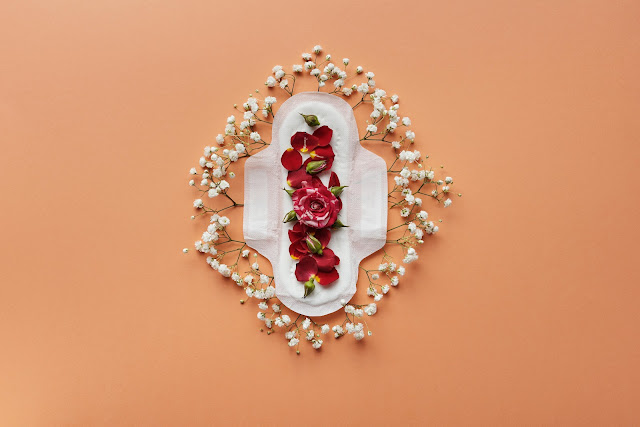
My eyes fly open courtesy of the sharp pain shooting through my lower abdomen and instant panic grips my heart. Please let it not be what I think it is. It is way too soon: I am not ready. “Do not be it. Do not be it. Do not be it.” I whisper to myself like the words can change anything. I look down to check my undercloth and instant relief floods my heart. It is not my menstrual period. Hopefully, this sharp pain in my stomach is just indigestion and not a sign that my period is about to start. Looking out of the window, I see it is getting bright outside. I should start getting ready for church. I love Sundays, not because of the going to church part but because I get to sleep in. Every other day, I have to wake up early to fetch water from the stream before the sun comes up, clean up the house, and go for lessons. Sundays are the exception because according to Mama, “it is the Lord’s day and we ought to rest just as God did”. I get up and stretch my hands as high as they can go, then roll up the sleeping mat and place it in the corner of the room where I usually keep it. Is that a new crack in the wall? Oh well, it is one more crack to go with the millions of cracks that make up this rickety house. As I walk out of my room, I notice how quiet everywhere is: Mama has already left for church. I would hear her moving about if she were home. I head to the kitchen so I can take out some water from the drum. The drum is big enough for a child to drown in if they get stuck in it. I know this from personal experience: I nearly drowned when I climbed into it when I was younger. I can still remember the sound beating Mama gave me after she rescued me. The beating had the desired effect because I did not go near the drum for years after that. I remember believing Mama hated me for the longest time after that. Those were the times I wished for my parents the most. My parents died in a ghastly car accident when I was an infant so I have lived with Mama, my father’s mother, all my life. I do not know anything about my parents or the accident that took their lives. Mama never talks about either no matter how many times I ask. She always says I do not need to know more because she is my mother and father now. Sometimes, I feel she is sweet for that. Other times, I feel she is selfish for hoarding information about my parents. I fill up the bucket beside the drum and take it to the back of the house where the toilet is located. The water is cool to the touch but I do not let that bother me as I quickly freshen up and head back to my room. Squatting in front of my small pile of clothes neatly folded at the corner beside my mat, I pick a dress at random to wear. Mama has mentioned a billion times that I should put more care into how I dress for service but I really do not care about impressing anyone with what I wear. I make quick work of dressing up, pick up my Bible, and head to church. I always take a leisurely stroll to church because I love the sight of nature – the slight wind blowing the tree leaves, the occasional scurry of small animals across the path, the sound of wildlife, and the view of the spectacular sunrise. I have watched it since I was a little girl, up until now that I am the full old age of sixteen. It is all so beautiful and it never gets old. I wish I could stay here forever. Unfortunately, there is church service. I do not like church. It is filled with the hateful and judgemental people of our community who gossip from the start of service till the end. I can never tell Mama this though… she will think I have been possessed by an evil spirit and take me to the pastor for special prayers. To be fair, it is not just the church I do not like. I do not like the entire community, their small-mindedness and nonsensical traditions make me so angry. I hear raised voices singing hymns from the church and sigh, I hate that too. The church is less than a five minutes walk from our house so I get there quickly. I take a moment to stare at the church building like I always do. I should be used to it by now but I am not. It amazes me that such a standard building exists in this community. It is tall enough to tower over every other building in its vicinity with its grey walls and ever-clean window panes. I wonder how much money was sunk into it, money that could have gone into improving the community. I snap out of staring, take a deep breath, and head to the church entrance with an ingenuine smile on my face. I am already dreading the long hours I will be stuck here for. I enter the church and walk to the back with my head down to avoid having to make eye contact with any of the gossips. Why are the doors at the side of the building and not at the back? I know I ask this question in my mind every Sunday because it annoys me every Sunday. I finally get to the back. I sit in the last row of seats and watch the spectacle that we call a Sunday service. It starts with Sunday school which is taken by one of
Inspiring Inclusion
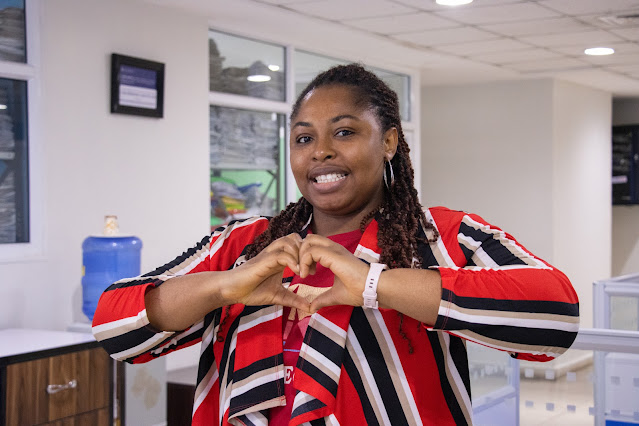
Let us clap for women, for their resilience, courage, and the indelible mark they have left on the pages of history. International Women’s Day, celebrated every March 8, is a resounding applause for the achievements, struggles, and progress of women worldwide. The genesis of International Women’s Day can be found in the women’s suffrage movement, a time when the world first began to deliberately record a groundswell of advocacy for equality. The inaugural National Women’s Day took place in the United States on February 28, 1909, organized by the socialist movement. Building on this momentum, the International Women’s Conference proposed an international day of celebration a year later. From these humble beginnings emerged a global tradition dedicated to recognizing the invaluable contributions of women and acknowledging the challenges they continue to face. International Women’s Day not only serves as a testament to the progress made but also as a rallying cry for the ongoing pursuit of gender equality. Historical Context Marginalized and displaced women in Africa face multifaceted challenges that demand attention and concerted efforts for sustainable solutions. Across the continent, numerous factors contribute to the vulnerability of these women, exacerbating their already complex circumstances. In conflict-ridden regions, women often find themselves disproportionately affected, becoming victims of violence, displacement, and exploitation. Displacement, whether due to conflict, natural disasters, or economic hardships, disrupts the stability of communities and forces women into precarious situations. This situation is particularly acute for marginalized groups, including ethnic minorities and indigenous communities, who may face additional layers of discrimination. Moreover, access to education and healthcare remains a persistent issue for marginalized women in many African countries, limiting their opportunities for personal and economic development. Empowering these women requires addressing systemic issues, fostering inclusivity, and creating avenues for education and skill development tailored to their needs. Women Inspiring Inclusion Wangari Maathai – Kenya: A Nobel Peace Prize laureate, Wangari founded the Green Belt Movement, empowering women through environmental conservation. The movement not only contributed to sustainable development but also elevated women’s roles in community leadership. Ellen Johnson Sirleaf – Liberia: She made history as Africa’s first female democratically elected head of state. Her presidency in Liberia marked a significant breakthrough, inspiring a new era of leadership for women in politics. Chimamanda Ngozi Adichie – Nigeria: She is a renowned author and feminist, who has used her literary works to challenge stereotypes and advocate for gender equality. Her impactful writings contribute to reshaping perceptions and inspiring dialogue on inclusivity. Oulimata Sarr – Senegal: Sarr, a passionate advocate, is the Regional Director for UN Women in West and Central Africa. Her work focuses on advancing gender equality, and she has been instrumental in promoting women’s rights and inclusion in the region. Malala Yousafzai – Pakistan (with African advocacy): While originally from Pakistan, Malala Yousafzai’s global advocacy for girls’ education extends to Africa. Through the Malala Fund, she has supported initiatives in countries like Nigeria and Kenya, amplifying the importance of education as a tool for inclusion. Dlamini-Zuma – South Africa: Nkosazana, former Chairperson of the African Union Commission, has been a key figure in continental diplomacy. Her leadership exemplifies the increasing recognition of women in high-ranking political roles, paving the way for more inclusive governance. Afua Hirsch – Ghana/UK: She is a British-Ghanaian author and broadcaster who uses her platform to address issues of race, identity, and gender. Her advocacy contributes to a more inclusive dialogue, fostering understanding and collaboration across diverse communities. Movements Inspiring Inclusion #BringBackOurGirls – Nigeria: Originating in Nigeria, this movement gained international attention, advocating for the safe return of kidnapped school girls. It showcased the power of activism in mobilizing communities and shedding light on issues affecting women and girls. Women of Zimbabwe Arise (WOZA) – Zimbabwe: This is a movement that empowers women to address socio-economic and political challenges. Through peaceful protests, it has demonstrated the potential of collective action in fostering inclusivity and advocating for change. #TotalShutdown – South Africa: This movement, which began in South Africa, brought attention to gender-based violence and femicide. Activists organized marches and campaigns, igniting a nationwide conversation and compelling authorities to address the pressing issue. Limitations to Inspiring Inclusion: Cultural Barriers: Deep-rooted cultural norms and traditions can pose challenges to inspiring inclusion. Resistance to change within communities may impede the progress of initiatives aimed at empowering women and promoting inclusivity. Limited Access to Resources: Many community movements face resource constraints, hindering their ability to scale impactful initiatives. Limited funding, technology, and educational resources can limit the reach and sustainability of inclusion efforts. Political Instability: In regions with political instability, gender equality organizations may face increased challenges. Repression, lack of governmental support, and security concerns can hamper the effectiveness of initiatives promoting gender equality. Lack of Legal Protections: In some areas, the absence or inadequacy of legal protections for women’s rights hinders progress. Insufficient laws addressing gender discrimination and violence create an environment where inclusive efforts face resistance and setbacks. Resistance to Change: Resistance from individuals, communities, or institutions unwilling to embrace inclusivity poses a significant limitation. Overcoming entrenched attitudes and fostering a mindset shift can be a prolonged and challenging process. Future Outlooks for Inspiring Inclusion: Technology as an Enabler: Continued advancements in technology offer opportunities for greater inclusion. Digital platforms can amplify diverse voices, provide educational resources, and facilitate connections that bridge geographical and cultural gaps. Intersectional Approaches: Embracing intersectionality will be crucial for a more comprehensive approach to inclusion. Recognizing the interconnected nature of various identities, including gender, race, and socio-economic factors, ensures that initiatives address the unique challenges faced by diverse groups. Youth Engagement: The active involvement of younger generations is a promising avenue for inspiring inclusion. Empowering youth through education, mentorship, and leadership opportunities can foster a more inclusive mindset that will shape the future. Social Responsibility (SR): Increasing corporate commitments to social responsibility can drive positive change. Companies adopting inclusive policies, supporting diversity in leadership, and investing in community initiatives contribute to a more equitable landscape. Policy Reforms: Ongoing advocacy for
Lessons For African Youth: Embrace Cultural Diversity
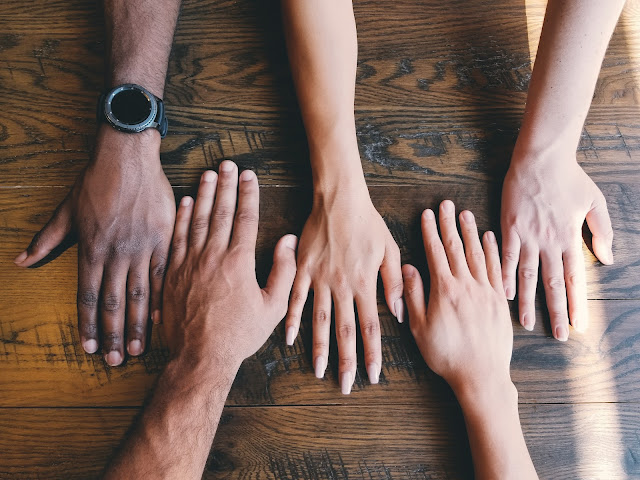
By Adetayo Adetokun Africa stands at a pivotal moment in its journey. With the largest youth population globally, the potential for transformative change is boundless. These young Africans are the torchbearers of their nations, poised to steer the continent toward a brighter, more prosperous future. Yet, this path forward is laden with challenges, ranging from economic disparities and political complexities to environmental concerns and cultural shifts. To navigate these turbulent waters, every young African youth must be armed with a profound set of lessons that not only equip them with knowledge but also nurture their character. Lesson 1: Embrace Cultural Diversity From the bustling markets of Marrakech to the serene savannas of the Serengeti, Africa’s diversity is its hallmark. To the young African youth, the first lesson is to wholeheartedly embrace this richness. Diversity is not just a matter of demographics: it is a treasure trove of ideas, perspectives, and experiences. Every culture contributes to the intricate fabric of African identity. Whether you hail from the Sahara or the Kalahari, the Nile or the Niger, your roots are intertwined with countless others. This diversity is a source of strength, resilience, and creativity. Diversity is not a threat but a source of enrichment. It is about appreciating the beauty of a continent where over 2,000 distinct languages are spoken, where rituals and ceremonies differ from village to village, and where cuisine can be as varied as the landscapes themselves. However, embracing cultural diversity is not merely a passive act of acceptance but an active engagement with the world around you. It means understanding the customs, traditions, and beliefs of your fellow Africans. It means listening to their stories, tasting their foods, and dancing to their rhythms. It means breaking down barriers and forging connections. This lesson lays the foundation for a more tolerant, inclusive, and harmonious society. Through embracing diversity, Africa can overcome historical divisions and conflicts, forging a united front to address the challenges of the 21st century.
The Power Series: Power Outage and Maternal Health

By Adetayo Adetokun Power outages are a major challenge faced by many African countries, with limited access to electricity being a significant barrier to development and progress. According to the World Bank, over 600 million people in Africa do not have access to electricity, making up nearly two-thirds of the population on the continent. Furthermore, frequent power outages are a common occurrence, with some areas experiencing blackouts for several hours every day. One of the areas where power outages have a particularly devastating impact is maternal health. Women in Africa face a range of challenges when it comes to accessing quality healthcare, and power outages only exacerbate these challenges. The lack of reliable electricity makes it difficult for healthcare facilities to provide essential services, such as surgical procedures, diagnostic tests, and neonatal care. Maternal mortality is a major concern in Africa, with the region accounting for approximately two-thirds of all maternal deaths worldwide. According to the World Health Organization (WHO), an estimated 830 women die every day from preventable causes related to pregnancy and childbirth. Furthermore, for every woman who dies, at least 20 more experience serious complications during childbirth. The impact of power outages on maternal health cannot be overstated. When the power goes out, healthcare facilities are forced to rely on backup generators, which may not be able to provide enough energy to power all of the necessary equipment. This can result in delays and cancellations of surgeries and other procedures, which can have serious consequences for women in labor. In addition, power outages can also make it difficult to store and transport medications and other medical supplies, which can affect the quality and availability of healthcare services. This is particularly true for facilities in rural areas, where access to electricity is limited and transportation networks may be poor. The lack of reliable electricity also makes it difficult for healthcare workers to communicate with one another and with patients. This can result in delays and misunderstandings, which can further exacerbate maternal health issues. For example, healthcare workers may not be able to access patient records or communicate with specialists in other locations, which can make it difficult to provide appropriate care. Power outages have a significant impact on maternal health in Africa. The lack of reliable electricity makes it difficult for healthcare facilities to provide essential services and can result in delays and cancellations of procedures. Furthermore, power outages can make it difficult to store and transport medical supplies, and can impede communication between healthcare workers and patients. Addressing these challenges will require a concerted effort from governments, healthcare providers, and other stakeholders to ensure that all women in Africa have access to high-quality maternal healthcare services. Several steps can be taken to address the impact of power outages on maternal health in Africa. One of the most important is to improve access to reliable electricity. This can be achieved through a range of measures, such as investing in renewable energy sources, expanding the grid infrastructure, and promoting off-grid solutions like solar power. Governments and international organizations can play a key role in providing funding and support for these initiatives. Another important step is to improve the resilience of healthcare facilities in the face of power outages. This can be achieved through measures such as installing backup generators, improving energy efficiency, and developing contingency plans for emergencies. Healthcare workers can also be trained to manage power outages and use available resources more efficiently. Efforts to improve maternal health outcomes in Africa should also focus on addressing other barriers to healthcare access, such as inadequate funding, poor infrastructure, and cultural barriers. Initiatives like community health worker programs, mobile health clinics, and telemedicine (funded by the government, individuals and non-governmental organizations) can help to reach women in remote areas and improve access to maternal healthcare services. It is important to recognize that maternal health is not only a healthcare issue but also a human rights issue. Governments and other stakeholders have a responsibility to ensure that all women have access to quality maternal healthcare services, regardless of their socioeconomic status or geographic location. In conclusion, power outages have a significant impact on maternal health in Africa, and addressing this challenge will require a comprehensive and coordinated effort. By improving access to reliable electricity, strengthening healthcare facilities, and addressing other barriers to healthcare access, we can help to ensure that all women in Africa have the opportunity to give birth safely and with dignity. Read the first episode of the power series here. It explores the effects of power outages on noenatal health and safety.
Cheating (vrb). Women (n).

Photo by Ogo on Pexels Men cheat. And yes, women also cheat. It is not strange, yet… people raise their brows when they hear that a woman cheated. It is even believed that women cheat more than men and that it is a well-kept secret. They just don’t want to accept it or talk about it. Society expects men to cheat. People claim it is ‘natural’ for men to want to explore. They have sexual urges that need to be quenched. But women are also sexual beings. They have desires and want to explore as well. People do not want to think about women as sexual beings or as being sexually active and having multiple partners. Relationship experts say the motivation for both genders differs. “Men desire more sex or attention while women desire to fill an emotional…emptiness”. Both men and women, however, are sexual and emotional beings and men also have emotional voids they try to fill differently. A friend once told me about a traditional belief from a particular tribe in North Central Nigeria. The idea was that any married woman who cheats on her husband would die. She claimed she had seen it happen. I asked what penalty befell a cheating husband, and she said none. I was dazed. I will not wholly cast off these beliefs as a Nigerian and African. But then I wonder…the spirit or spirits behind this belief must be quite biased – and wicked if you ask me – to punish only women and not men for adultery. I believe that certain traditional and cultural beliefs are created by men to relegate and subjugate women and keep them in check. Another incident is of a woman narrating her ordeal during an interview. Her husband suspected she was having extramarital affairs because he saw a man at her business center. He reported her to the elders in the community and, since he didn’t have any evidence, insisted that she eats a fowl uncooked with its blood and feathers, and if she didn’t die within a year, she was innocent. This is one of the many sacrilegious practices in Nigerian and African societies. I recently read an article about a ceremony in a village in Rivers State where young girls are given certificates of womanhood for being virgins. This involved being ‘checked’ by older women in the community. Virginity before marriage is expected of a woman, while it is considered a plus for a man. Sadly, many women proliferate this idea. There is this silly expectation that if a man wants to be with you, he has other women on the side, ‘side chicks’ as they are called, and you should be grateful that he picked you out of the lot. If men are okay to cheat, then people should accept cheating women. Cheating is unique to relationships and individuals, not genders. Individuals in relationships who consciously decide to be together should be committed to one another.
International Day for the Girl Child
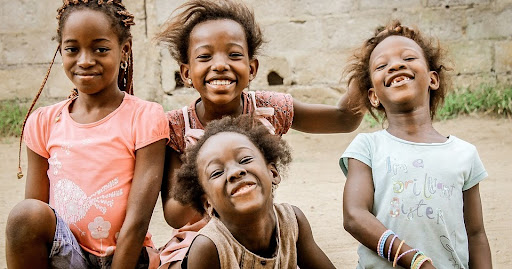
Carefree Girls: What we aspire for ever girl in the world. Image: Unsplash. Today, SHADES OF US joins the world in commemorating the INTERNATIONAL DAY OF THE GIRL! We believe EVERY GIRL deserves the following; 1. Equal Access To Basic Human Rights; 2. Equal Access To Education; 3. Equal Access To Proper Health Care; 4. Equal Pay For Same Quality Or Quantity Of Work/Job; 5. Equal Right To Vote And Be Vote For And To Be In Leadership Positions Without Intimidation; 6. Equal Access To Opportunities; 7. Equal Access To Inheritance; 8. Right To Choose Whom To Marry And if/when To Marry; 9. Protection From Rape, Pedophilia, Domestic Violence Or Abuse, Emotional Abuse, Patriarchy And Misogyny; 10. Protection From Harmful Cultural And Religious Practices Like Female Genital Mutilation, Public Flogging For Perceived Wrongs Etc; 11. Equal Access to Digital Rights and Protection from Digital Gender Based Violence. With this in mind, we agree with this year’s theme for the International Day of the Girl Child as put out by the United Nations. If girls progress in all the spheres mentioned above, the sustainable development goals will progress and we will enjoy a better world. Add your voice today! What can YOU do to make girls progress?
Ending Violence Against Women
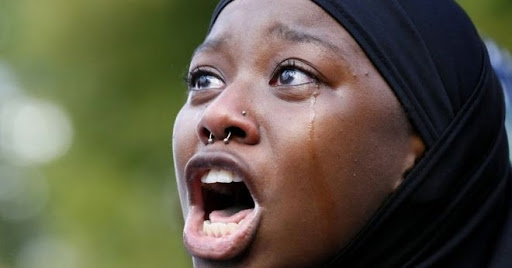
Image Credit: BBC – AFRICA’S A COUNTRY There is a concerted effort to keep women ‘in their place in society’. It doesn’t matter if it is in the seeming free societies of the Europe, Australia, America or South East Asia; the strict societies of the Middle East; the budding developments of Africa; or the backwater towns of each of these regions. The common factor is that society has carved out a place for women and girls and when they refuse to stay in ‘their lane’, they are most often met with violence. Even worse than that is the number of women who stay in ‘their place’ and still suffer the debilitating effects of violence; domestic abuse, rape, female genital mutilation, overbearingly hard labor, child marriage, improper healthcare leading to extremely painful childbirth, maternal mortality and more. Violence against women has become a disease that has been permitted to stay; a disease that is fueled by patriarchy, misogyny, bigotry and the pervading view that women are less than men. Since the dawn of time, many women have accepted their lot in life and have never questioned the status quo. When some women stand up against the injustices that society metes out to them, they are met with resistance from men, which is expected, and from women too, which is just sad. We admit that men are not the only proponents of patriarchy and the irony isn’t lost on anyone. This means that in ending violence against women, the mandate has to go back to women. Women have to be taught that; 1. We are human beings first and thus, equal to men. We are not by nature of our gender less than men; be it physically, emotionally, mentally or psychologically. Some of our physiology may be different but we are inherently equal; 2. The ONLY thing a man can do that a woman CANNOT do is provide sperm. In like manner, the ONLY thing women can do that men CANNOT do is carry a child from fertilization to term and produce milk to suckle the child. These two things are purely physiological; 3. Women are emotional beings who are logical too. Just as men are. It is pure fallacy to think that women are ONLY emotional and men ONLY logical. This ruse has been used to keep women in ‘their place’ when it comes to leadership, governance, family direction and the likes; 4. Women CAN and WILL do any and everything they set their minds to and shouldn’t believe otherwise. She can be an astrophysicist or a housewife. Women have the brain capacity to do it all; 5. Women are not to be corrected with physical abuse. There is no cause – just or otherwise – for hitting a woman. When she does wrong, she should be told she has done wrong and allowed to learn from her mistakes. Flogging, beating, slapping, cutting, hitting or punching her is NOT ACCEPTABLE! Under no circumstance is spousal abuse right; 6. It is not a woman’s fault that she is raped or sexually assaulted and abused. It is the perpetrator’s fault. The entire blame lies with the abuser. A woman does not invite rape by dressing in a certain way, or by being on the bus alone, or by wearing make-up, or by putting pictures on her social media platforms, or by walking home in the dark, or by hanging out with that male friend, or by refusing her husband sex or by trusting that uncle (or brother, father, family friend, teacher or anyone she knows) and a woman definitely doesn’t invite rape by having her own opinions and standing for them; 7. Women have every right to have and hold their own opinions, whether similar or vastly different from popular norms, without fear of harassment and abuse; 8. Women have a right to inheritance and ownership of property without being harassed by male family members or in-laws. The home wives live in with their husbands and children is as much theirs as it is their spouses. No one has the right to evict them from their homes in the event of the demise of their husbands. Adding to that, women are not to be treated in barbaric and unfair manner to prove that they are not culpable in their husband’s death. People die! deal with it; 9. No woman should have to face ANY FORM of female genital mutilation. Every organ on the body has its use and function and beyond that, it is not beneficial to any woman to have part of or all of her external genitalia removed in the guise of enforcing sexual purity. Female genital mutilation is a totally unhealthy, irrelevant and an unnecessary procedure and must be stopped globally; 10. Every woman is as sexual a being as men are. A woman’s urges and desires does not make her a ‘whore’, ‘prostitute’ or even loose. If a woman who chooses sexual freedom is to be labelled, men who do same should be labelled too. The wanton double standards have to come to an end! Some women, like some men, have higher libido than others and THAT IS OKAY! A woman has the right to explore her sexuality without fear of being labelled or worse, attacked. She has the right to make her own choices of chastity or sexual freedom without being forced to tow a line; 11. Women ARE NOT PROPERTY! They are not to be bought and sold like goods in the open market; whether it is for marriage or for forced prostitution. A woman is a full, living, breathing person and selling her not only demeans her humanity, it speaks of character so vile it has to be purged. No woman should be a slave to anyone and; 12. EVERY WOMAN is entitled to proper healthcare from birth until death. She shouldn’t have to die from diseases or childbirth because her family or spouse do not believe in modern medicine or the importance of hospitals.
#JusticeForChisomAnekwe: WHY YOU NEED TO JOIN THE CAMPAIGN
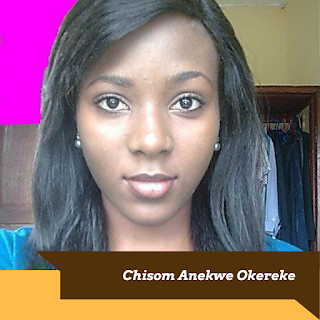
I was scrolling through my Facebook timeline and happened on this story by Milly Milly. This is Chisom Anekwe (nee Okereke), a young, vivacious, graceful, kind-hearted and intelligent woman who had devoted her life to helping indigent kids and giving their lives a meaning. She’s an alumna of LEAP Africa. Two weeks ago, precisely April 30th 2017, Chisom died under questionable circumstances at Magodo Specialist Hospital while trying to birth her third offspring. We believe strongly that the authorities need to ensure that lives are taken sacred in hospitals like Magodo Specialist Hospital where such avoidable deaths are recorded. Chisom was admitted in the hospital four days before she got into labour. She had previously been diagnosed of high blood pressure during the course of the pregnancy. She already had two beautiful daughters birthed in the same hospital and was there to birth her third child, a son. While at the hospital, no one attended to her when she needed the help to be delivered of the long awaited baby. She was left for hours in labour. This happened until her husband created a scene, which eventually caused the doctors to go to her ward and on inspection they found out that the baby had struggled and died. The husband at this point requested for a CS which he paid for and even signed the consent form presented by the hospital. He was then tricked out of the room to go prepare for blood transfusion and on getting back, he found out that the doctors had induced the wife and delivered the dead baby without operation not minding that the CS procedure had been paid for. This was also without his consent. During the process of delivering the baby, the uterus got ruptured and the doctors left her like that, no further attendance still. Shortly after, the husband noticed she was swelling up in her stomach area and called the attention of the doctors who said they were getting ready for a surgery, a preparation that took longer than usual. After waiting in vain for the surgical team, the frustrated husband went furiously to the reception to demand why they were wasting time only to discover the doctor had sneaked out of the hospital under funny pretences. At this point he got other hospital staff to wheel her out of the hospital and in that process Chisom died! This is the story of most young women who die while giving birth as a result of the callousness, ignorance and carelessness of inexperienced doctors. In this era, we shouldn’t be talking about Child and Maternal Mortality especially when it can be avoided. This could have been avoided but it wasn’t and now Chisom Jane Anekwe is a victim and has been added to the statistics. We demand; 1. That Magodo Specialist Hospital, Shangisha, Lagos, be investigated for their actions and the subsequent death of Chisom. 2. That both the Nigerian Medical Association NMA and the Medical and Dentist Council of Nigeria, MDCN ensure that supposed Specialist Hospitals who claim to have a resident Gynecologist are verified. 3. That there be justice for Chisom Okereke Anekwe! #SaveTheNextVICTIM #Justice4Chisom #Fight4OurDaughters Cc: Ihunegbo Ikechukwu Moses This hurt me so bad when I read it. There are lot of questions that ran through my head while reading. Questions like; 1. Why no one attended to a woman who had pregnancy induced high blood pressure? If she was admitted four days before she went into labor, didn’t that mean her impending birth was high risk?; 2. Why the husband had to cause a scene before the Magodo Specialist hospital staff deemed it fit to do their jobs?; 3. Was the negligence the cause of the baby’s death? If so, shouldn’t the hospital be brought to book for TWO deaths?; 4. If the request for a caesarean section by the husband was considered unnecessary or out of his area of expertise, why did the doctor acquiesce and have the hospital collect his money?; 5. Is uterine rupture a real thing? The answer is yes! So if that happened to Chisom, why was she left unattended?; 6. Why did the doctor run if he done his job as ethically and professionally as he should have? While I am cautious about calling out and blaming doctors, especially because I don’t know what extenuating circumstances precede their decisions, I think this doctor and the staff on duty were negligent on many grounds. This story is not unusual as many of our hospitals – public and private – are hubs of pain infliction instead of the other way round. Our doctors are overworked and tired, nurses are apathetic and in many cases, downright cruel, and other staff seem immune to the suffering of the sick. A life was lost because we run systems that allow incompetence, negligence and apathy for people’s suffering. Chisom is dead as a result of this failing system but we can prevent the next case of death-by-malfeasance. There is a campaign going to now seeking justice for Chisom and we can be a part of it. Join the campaign here and help prevent another senseless death of that mother, sister, wife, cousin, aunt, niece, friend, colleague or neighbor. We pray that Chisom’s family finds strength in this trying time. And beyond that, what needs to be done to improve our health sector so there isn’t a continued waste of Nigerian lives?

